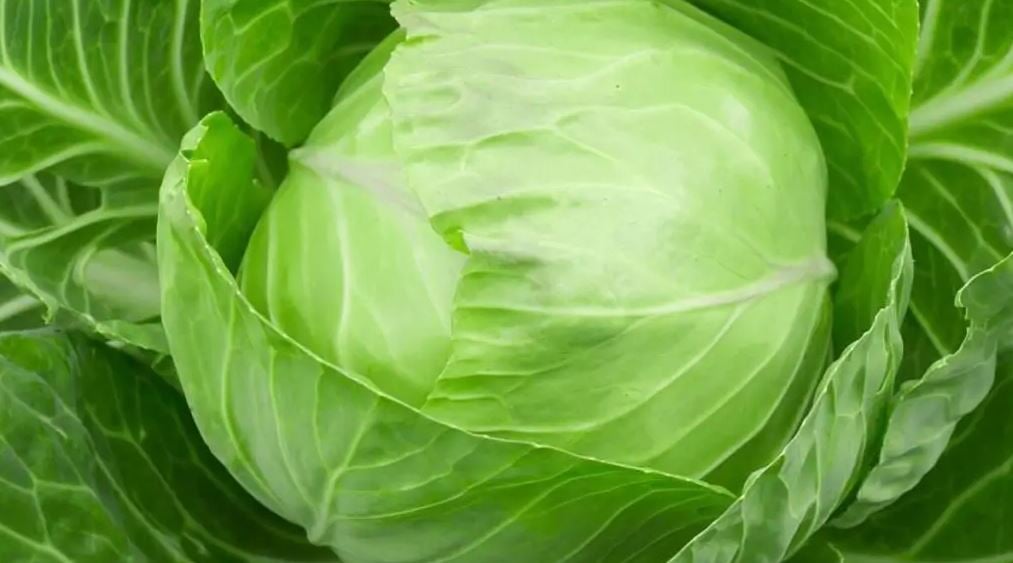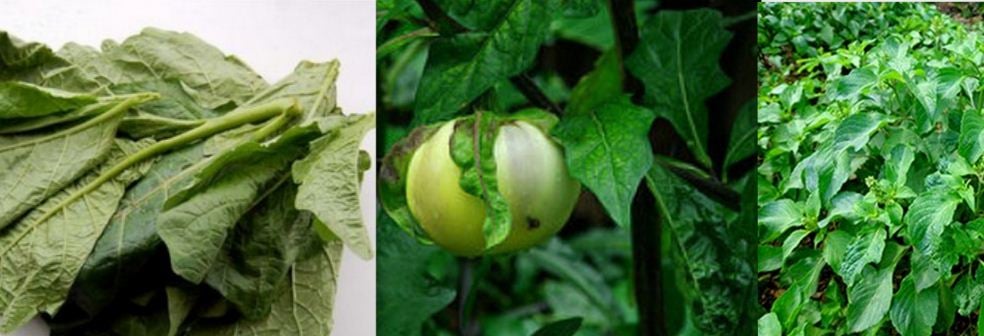22 Amazing Health Benefits of Cabbage

Cabbage is a type of vegetable that is particularly good for health. The food boasts a healthy combination of vitamins, minerals, and fiber, making it a low-calorie option. Eating healthy is a beautiful approach to enhancing one's well-being.
Cabbage provides various health benefits, from reducing inflammation to promoting a healthy digestive system. In this article, we will explore 22 fantastic health benefits of cabbage that will make you want to add this superfood to your daily diet.
22 Amazing Health Benefits of Cabbage
In this article, we explore 22 excellent health benefits of cabbage, highlighting its impact on various aspects of our well-being. From its anti-aging properties to its role in maintaining a healthy digestive system, cabbage is a versatile and powerful addition to our daily meals.
1. Rich in Nutrients
Cabbage is a nutritious vegetable that contains several essential vitamins and minerals. Some critical nutrients in cabbage include vitamin C, K, B6, folate, Potassium, and manganese.
Free radicals can damage cells, but the antioxidant Vitamin C protects them. Maintaining a healthy immune system safeguards the body against illnesses and improves the skin's overall health. Vitamin K in your body promotes bone health and aids in blood clotting.
It has the potential to maintain heart health and enhance brain function simultaneously. Our body requires vitamin B6 significantly. This substance aids in synthesizing proteins and neurotransmitters in our brain, which produce pleasurable sensations.
Folate is essential for proper cell growth and development, and pregnant women need to consume enough folate to help prevent congenital disabilities.
A necessary substance, Potassium, is essential for regulating blood pressure and ensuring the heart's optimal function. Crucial for bone health and aiding in the conversion of food into energy, manganese holds significant importance.
Consumption of cabbage can promote good health owing to its valuable vitamins and minerals. Also contains antioxidants such as choline, beta-carotene, lutein, and quercetin.
2. Promotes Heart Health
a. Reduces the Risk of Heart Disease
Cabbage is rich in antioxidants, particularly anthocyanins found in red cabbage. According to research, incorporating foods with high levels of anthocyanins in one's diet can lower the probability of acquiring heart disease. One can increase arterial flexibility and reduce blood pressure levels by consuming anthocyanins.
b. Lowers Bad Cholesterol Levels
Consume cabbage, specifically red cabbage, to help reduce harmful cholesterol levels in your body. Incorporating this into one's routine promotes a strong heart while decreasing the likelihood of cardiovascular disorders.
3. Enhances Digestive Health
a. Rich in Dietary Fiber
Cabbage has two types of fiber- one which dissolves in water and the other which doesn't. Consumption of insoluble fiber increases feces size and promotes regular bowel movements, whereas soluble fiber aids in the proliferation of beneficial gut microorganisms. A fiber-rich diet can facilitate bowel movements and upgrade a healthier digestive system.
b. Supports Gut Health with Probiotics
Fermented cabbage products, such as kimchi and sauerkraut, are rich in probiotics that promote a healthy gut. These probiotics aid digestion and help maintain a healthy balance of gut bacteria, which can prevent various digestive issues.
4. Fights Inflammation
Cabbage contains powerful antioxidants and anti-inflammatory compounds, such as sulforaphane, that help combat chronic inflammation. Consuming cabbage can help alleviate inflammation, protecting you from falling ill to diseases like heart complications or cancer.
5. Offers Protection Against Cancer
Cabbage is a cruciferous vegetable considered a cancer-fighting food due to its numerous beneficial properties. This food's abundance of antioxidants, vitamins, minerals, and fiber can prevent cancer. Due to its ability to decrease inflammation, cabbage effectively combats cancer.
Constant bodily discomfort can trigger certain cancerous conditions. The presence of certain substances in cabbage can effectively combat the feeling of soreness and improve your well-being.
Cabbage is also rich in glucosinolates, sulfur-containing compounds that activate the body's natural detoxification pathways. This process helps eliminate cancer-causing toxins from the body and may reduce cancer risk.
The high fiber content of cabbage also reduces the risk of colon cancer. The fiber helps to promote healthy bowel movements and prevents the accumulation of waste material in the colon.
Vitamin C is present in cabbage, vital in protecting the body from cancer-causing free radicals. The immune system becomes more robust with the help of Vitamin C, which is crucial for combating cancer.
In conclusion, cabbage is a cancer-fighting food that you should include in a healthy diet. Your meal can become more beneficial by incorporating this ingredient, which can reduce inflammation and provide antioxidants. It also serves to improve digestion and facilitate the process of detoxification.
6. Aids Diabetes Treatment
Cabbage, particularly red cabbage, has been shown to have antihyperglycemic properties, which can help reduce the risk of diabetic nephropathy. Moreover, the anthocyanins in cabbage may also have a role in treating and preventing diabetes.
7. Promotes Vision Health
Cabbage's lutein and vitamin C contribute to maintaining good eye health: Lutein and another antioxidant called zeaxanthin to protect the retina and lens from ultraviolet light damage. Vitamin C can also help regenerate vitamin E inside the eye, an essential antioxidant for maintaining good vision.
8. Strengthens Immunity
Including cabbage in one's diet can improve immune system functioning and overall physical fitness since it contains beneficial vitamins, minerals, and antioxidants-vitamin C in cabbage aids in enhancing the immune system. In addition, it also contains vitamins A, K, and E, all of which play a vital role in maintaining a healthy immune system.
Cabbage contains valuable minerals such as calcium, Potassium, and magnesium. They aid in promoting the efficiency of the immune system. Flavonoids and polyphenols in cabbage protect against free radicals that can harm cells and compromise the immune system, as they act as antioxidants.
Incorporating cabbage into your diet can be an excellent way to support your immune system. You can enjoy it raw in salads or coleslaw or cook it in stir-fries, soups, or stews. So, include cabbage in your diet to help boost your Immunity and stay healthy.
9. Helps with Weight Loss
Cabbage is a low-calorie, high-fiber food that can aid weight loss. Consuming cabbage can provide a more prolonged feeling of fullness, resulting in the consumption of fewer calories.
Losing weight is achievable through the utilization of this. Some people also follow a specific weight loss diet called the "cabbage soup diet," which focuses on consuming large amounts of cabbage soup for seven days.
10. Improves Skin Health
The vitamin C content in cabbage is essential for collagen production, a structural protein involved in skin formation and wound healing. Additionally, red cabbage has potential skin cancer prevention properties in mice studies.
11. Strengthens Hair
In mice studies, cabbage contains the antioxidant quercetin, which induces hair growth in preexisting alopecic lesions.
Although more research is needed to determine the effectiveness of quercetin in promoting hair growth in humans, the presence of this antioxidant in cabbage suggests that consuming cabbage may have potential benefits for hair health.
12. Boosts Brain Health
Cabbage has a lot of vitamin K, essential for maintaining brain health. Vitamin K protects nerve cells from damage and prevents degenerative diseases. Additionally, cabbage is a rich iodine source, a necessary nutrient for proper brain functioning.
13. Supports Bone Health
Cabbage is rich in nutrients, such as calcium, magnesium, and Potassium, essential for maintaining strong and healthy bones. Regular consumption of cabbage can help prevent bone-related diseases like osteoporosis and promote overall bone health.
14. Regulates Blood Pressure
Cabbage is an excellent source of nutrients that help manage blood pressure. There is a high amount of potassium present in this food. The presence of Potassium in the body assists in regulating blood pressure by neutralizing the impact of sodium. Potassium works by relaxing the blood vessels and reducing the stress on the arterial walls.
In addition to Potassium, cabbage has other beneficial compounds, such as flavonoids and anthocyanins, known for their antioxidant properties. These compounds help protect the arteries from oxidative damage and inflammation, leading to high blood pressure.
Cabbage is also a rich source of dietary fiber, essential for plaque buildup in maintaining healthy blood pressure levels. Fiber helps remove excess cholesterol and triglycerides from the body, preventing plaque buildup in the arteries, which can result in high blood pressure and other cardiovascular diseases.
Overall, adding cabbage to your diet can be an effective way to manage blood pressure naturally. Eating cabbage can give your body the necessary nutrients to maintain healthy blood pressure levels and reduce the risk of developing hypertension.
15. Good for Diabetic Patients
The potassium content in cabbage helps maintain blood sugar levels, reduces stress, and alleviates anxiety. Incorporating cabbage into the diet of diabetic patients can help keep blood sugar levels and improve overall health.
16. Good for Pregnant Women
Cabbage is a rich source of folates, essential nutrients required during the early developmental stages of the fetus. The intake of cabbage by expecting mothers can aid in averting congenital disabilities in their newborns, particularly spinal complications. However, cooking cabbage properly before consumption during pregnancy is essential to avoid the risk of foodborne illness.
17. Boosts Immunity
Consuming cabbage, which is high in vitamin C, can strengthen our defense mechanism by promoting the development of white blood cells and T-cells. Combatting ailments necessitates these.
18. Helps Treat Peptic Ulcer
The anti-inflammatory compounds in cabbage, such as glucosinolates, can help reduce peptic ulcers in the stomach. Consuming cabbage juice has been shown to ease inflammation in the stomach lining and speed up recovery.
19. Antioxidant Properties
Including specific elements in cabbage can assist in preserving overall health by countering the effects of free radicals. Ingesting antioxidant-rich foods can contribute to the well-being of your body and reduce the likelihood of getting ill.
20. Provides Relief from Allergies
Cabbage contains anti-inflammatory properties that can help alleviate symptoms of allergies, irritation, fever, joint pain, and skin disorders. Regular consumption of cabbage can provide relief from these conditions.
21. Reduces Signs of Aging
Cabbage is rich in vitamins C and E, which help promote collagen production and maintain skin elasticity. It can help you appear more youthful and inhibit the onset of aging indications.
22. Improves Complexion
The high potassium and vitamin A levels in cabbage can help improve Complexion and give the skin a healthy glow. Applying cabbage juice or leaves to the skin can also benefit acne and other skin conditions.
Tips for Selecting and Storing Cabbage
When selecting cabbage, look for one that is heavy for its size, with tight and firm leaves. Loose leaves may indicate that the cabbage is older.
To keep cabbage fresh for up to two weeks, store it in a fantastic, dark location or seal it in plastic and refrigerate it. If using only half a cabbage, wrap the other half in plastic with water sprinkled on the cut side and refrigerate.
What are the benefits of steaming cabbage?
Steaming cabbage offers a variety of health benefits. First, it helps to retain the nutritional value of the vegetable, as it doesn't require any added fats or oils, which can reduce the total calorie content of the dish.
Steaming also softens the cabbage leaves, making them easier to digest, and can help to break down compounds that can cause digestive issues.
Additionally, steaming cabbage can help to preserve its natural flavor and texture, giving it a bright, crisp taste and a pleasant, slightly crunchy texture. It is an excellent addition to various dishes, from stir-fries and salads to soups and stews.
Finally, steaming cabbage is a simple and convenient way to prepare this nutritious vegetable. You can do it so fast and easily using a steamer basket or a microwave steamer, and it requires minimal cleanup. Steaming allows you to cook large quantities of cabbage at once, which can be a great time-saver for busy home cooks.
Cooking Tips for Cabbage
Cabbage can be raw, boiled, steamed, roasted, stuffed, or sautéed. To get the most health benefits, consume raw or lightly cooked cabbage. Add cabbage to a salad, soup, or stir-fry to create a nutritious meal.
In conclusion, cabbage is an incredibly nutritious and versatile vegetable with many health benefits. Incorporating cabbage into your diet can help improve heart health, promote digestion, strengthen the immune system, and support overall well-being. So, go ahead and enjoy this superfood in various dishes and reap its many health benefits!




